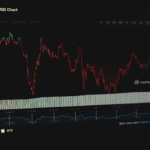The digital revolution has transformed nearly every aspect of our lives, and the world of finance is no exception. A new asset class has emerged – digital assets – and navigating this space can be daunting for beginners.
What are Digital Assets?
In simplest terms, digital assets are anything of value that exists in a digital format. Unlike physical assets like gold or artwork, digital assets are intangible and rely on cryptographic technology for security and verification. They can be created, stored, and traded electronically, offering a unique set of advantages and considerations.
Types of Digital Assets
The digital asset landscape is diverse, encompassing a wide range of categories:
Cryptocurrencies: The most well-known type, cryptocurrencies like Bitcoin and Ethereum are digital tokens used as a medium of exchange. They operate on decentralized blockchain networks, eliminating the need for a central authority.
Security Tokens: These represent ownership of an underlying asset, such as stocks, bonds, or real estate, that’s been tokenized on a blockchain. This allows for fractional ownership and potentially faster, more secure transactions.
Non-Fungible Tokens (NFTs): NFTs represent unique digital items like artwork, collectibles, or even in-game items. Each NFT is unique and cannot be replicated, making them valuable for collectors and creators.
Utility Tokens: These tokens provide access to specific services or functionalities within a particular platform or ecosystem. They are often used within decentralized applications (dApps) and can offer benefits like voting rights or discounts.
Digital vs. Traditional Assets: Key Differences
While both digital and traditional assets represent value, they differ in several key aspects:
Tangibility: Traditional assets are physical objects, while digital assets exist solely in the digital realm.
Centralization: Traditional assets are often regulated by central authorities, whereas cryptocurrencies rely on decentralized networks.
Fractional Ownership: Many digital assets can be easily divided into smaller units for easier trading, which can be challenging with traditional assets like real estate.
Transferability: Digital assets can be transferred quickly and securely compared to the often complex paperwork involved in traditional asset transfer.
The Potential of Digital Assets
Digital assets are a rapidly evolving space with the potential to revolutionize various aspects of finance. They offer greater accessibility, efficiency, and transparency in transactions. Additionally, the unique features of digital assets like programmability open doors for innovative applications in areas like crowdfunding and supply chain management.
The World of Digital Assets Awaits
Understanding the basics of digital assets is the first step towards exploring this exciting new world. However, navigating this complex space requires careful research and due diligence.
Kenson Investments, a leading digital asset consulting firm, can be your trusted partner. Contact Kenson Investments today! Let our team of digital asset specialists guide you through the world of digital assets, offering digital asset education.
Get in touch with us today.
Disclaimer: The information provided on this page is for educational and informational purposes only and should not be construed as financial advice. Crypto currency assets involve inherent risks, and past performance is not indicative of future results. Always conduct thorough research and consult with a qualified financial advisor before making investment decisions.
“The crypto currency and digital asset space is an emerging asset class that has not yet been regulated by the SEC and US Federal Government. None of the information provided by Kenson LLC should be considered as financial investment advice. Please consult your Registered Financial Advisor for guidance. Kenson LLC does not offer any products regulated by the SEC including, equities, registered securities, ETFs, stocks, bonds, or equivalents”














